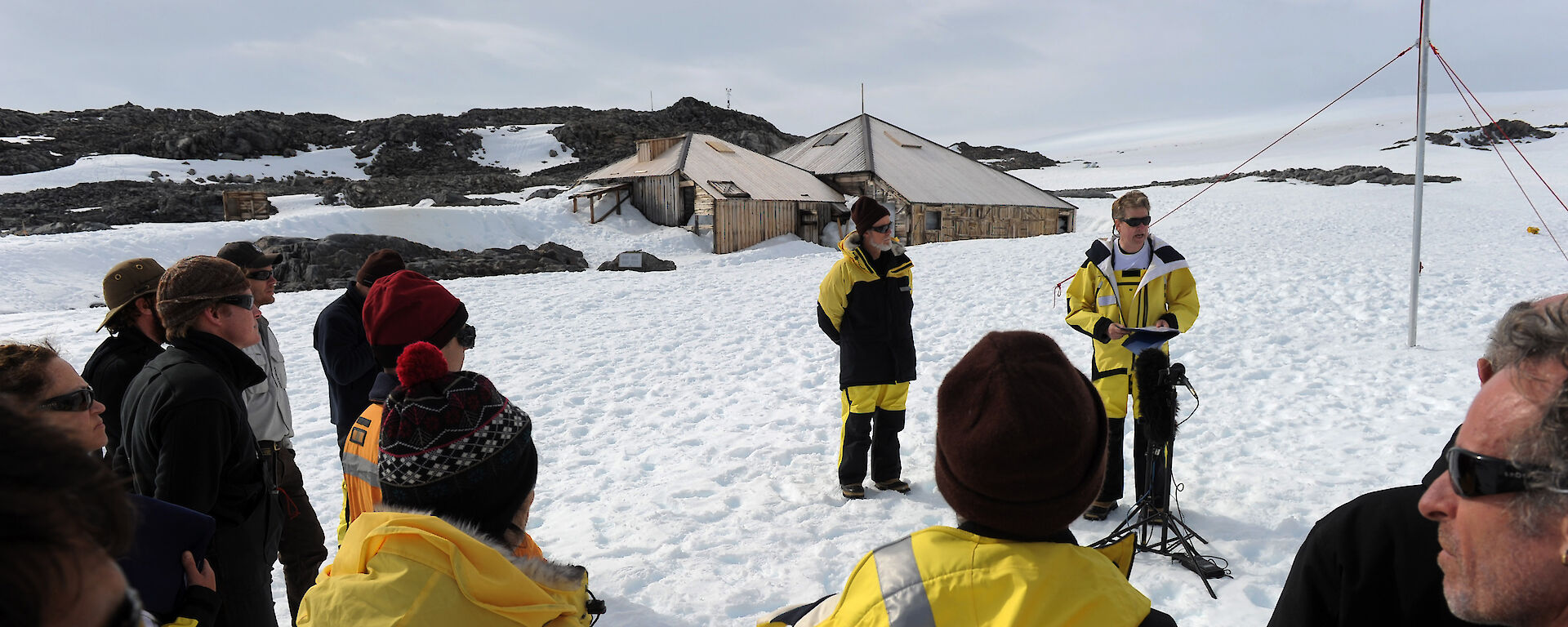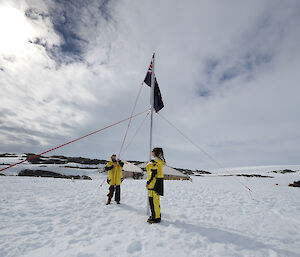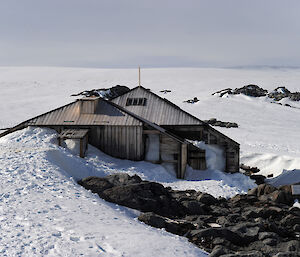A message from the Prime Minister, Julia Gillard, has been read at a commemorative event at Commonwealth Bay in Antarctica to honour the men of the Australasian Antarctic Expedition, led by Douglas Mawson 100 years ago.
The event was held today at 10 a.m. (Eastern Australian Summer Time), four days after Mawson and some of his companions spent their first night ashore a century earlier, after arriving at the continent on January 8th. Then, as now, expeditioners had to wait for the right weather window to go ashore.
At a small gathering of 26 people representing the Antarctic community, the Director of the Australian Antarctic Division, Dr Tony Fleming, read the Prime Minister’s message which acknowledged the significant contribution to science that stemmed from the expedition.
The Prime Minister said Sir Douglas Mawson was a man of generous and intrepid spirit drawn by what he called ‘the passion of a great adventure.’
Ms Gillard said “Mawson and his colleagues undertook their epic journey not for profit or fame, but to extend the boundaries of human knowledge and to advance the cause of science.”
She described the Australasian Antarctic Expedition as “the last in the heroic age of exploration and a feat of human endurance the like of which we may never see again.”
Douglas Mawson was knighted for his Antarctic endeavours by King George V in 1914.
The Prime Minister’s message is now sealed in a time capsule to be left at Commonwealth Bay.
Ms Gillard expressed the hope that those who open the capsule in 2112 “will find the passage of a century has done nothing to diminish the courage and integrity of those great men.”
Along with the Prime Minister’s message, the time capsule contains the winning competition entries from Australian students who were asked for their vision of Antarctica in another hundred years, and a range of documents relevant to today’s Antarctic program.
“In the years since those early explorers made their first faltering steps on Antarctica, our research has taught us much about the continent and how its physical and biological systems function,” Dr Tony Fleming said.
“With this has grown an awareness of the extraordinary degree to which Antarctica and the Southern Ocean drive global change.
“An entire continent devoted to peace and science — what a wonderful legacy the Australasian Antarctic Expedition has left us. We must be ever vigilant to ensure that we can hand that legacy on to our grandchildren,” he said.
The event was also marked by the raising of the Australian flag above the Main Hut, the same place where Mawson and his men raised the flag in January, 1912.
A special reading by eminent Australian historian and award-winning author, Professor Tom Griffiths, from the Australian National University featured excerpts of diary entries by some of the men who took part in the 1911–1914 expedition.
Dr Fleming said that following the event at the hut, those present took a short walk to the area known as Proclamation Hill to install the time capsule and place a commemorative plaque.
He said that despite several days of frustrating weather in the lead-up to the centenary celebrations, conditions had cleared to mild on the day with a light breeze, blue skies and a temperature of −1°C (minus 1 degree Celsius).
Due to the continuing presence of an iceberg at the entrance to Commonwealth Bay and the build-up of sea ice behind the berg, helicopters were used to ferry expeditioners from the research ship Aurora Australis to land.





